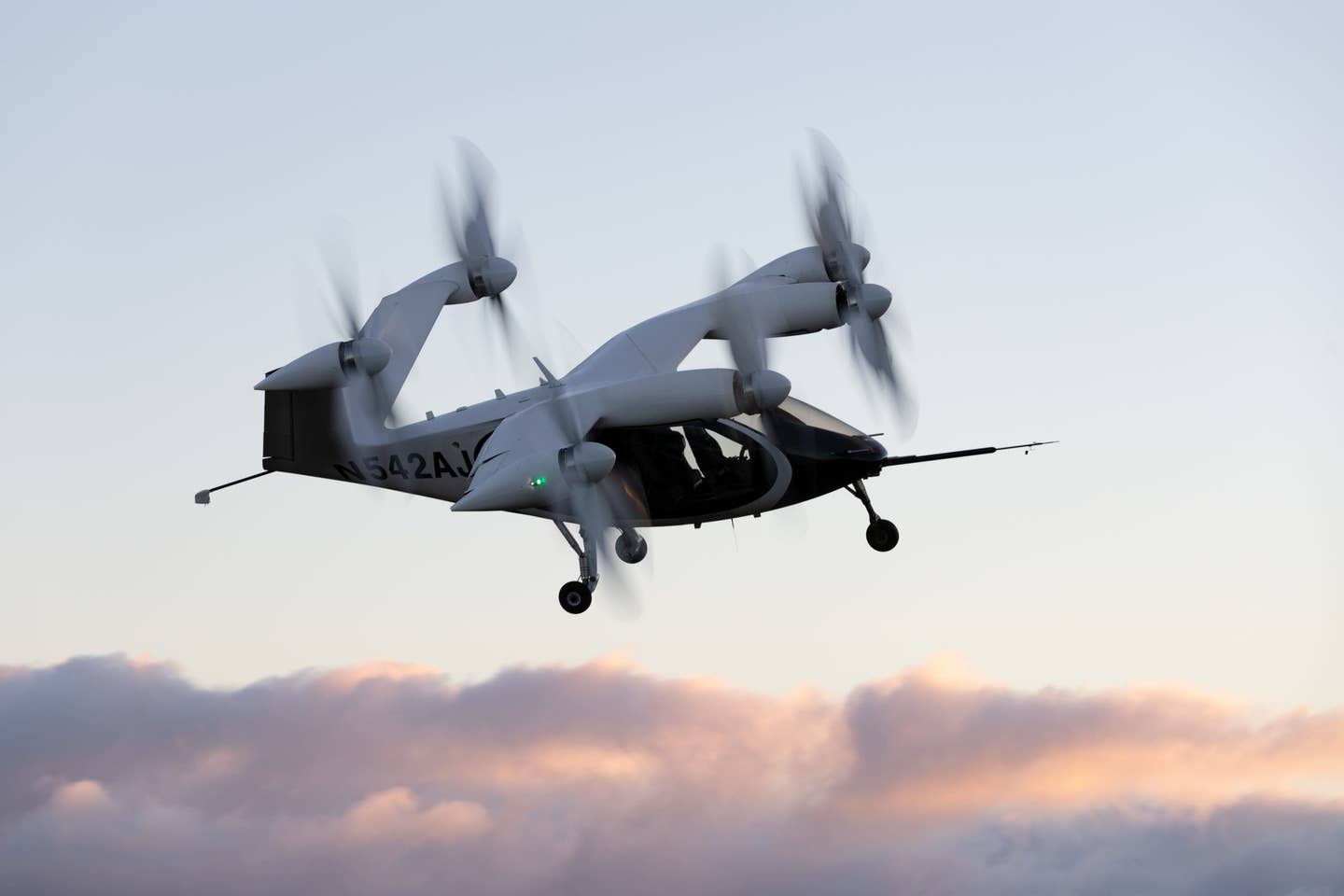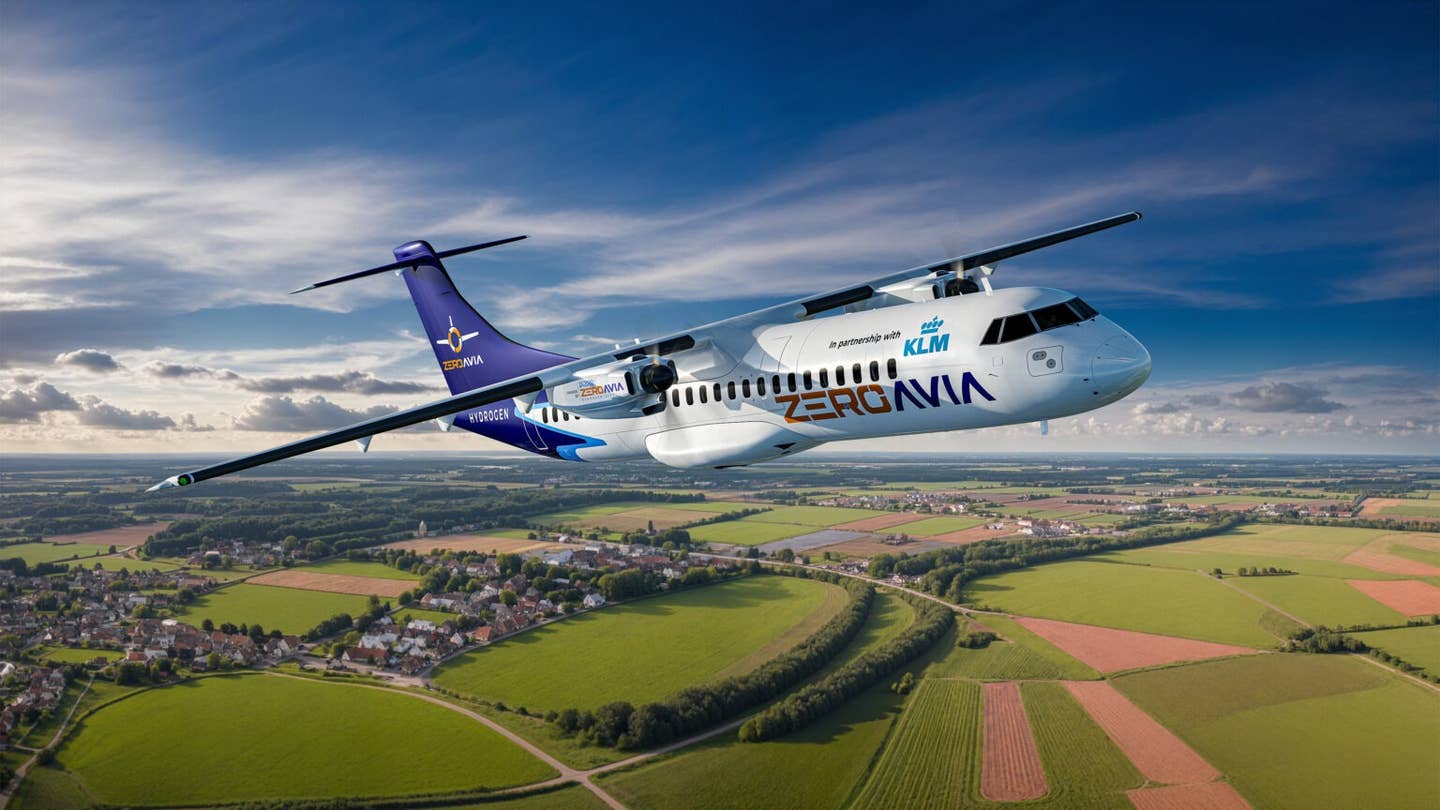Apple Engineers Jumping to eVTOL
FLYING examines why several key engineers have recently jumped ship from Apple’s self-driving car project to join the emerging electric vertical takeoff and landing (eVTOL) industry.

Several Apple engineers have recently taken jobs developing new eVTOL aircraft. Credit: Joby Aviation
A year ago, powertrain engineer Michael Schwekutsch seemed happy to encourage others to join him in California’s Silicon Valley on Apple’s (NASDAQ:AAPL) project to develop a self-driving electric car, known as Project Titan.
“Do you want to be part of Apple’s special forces that create the next ‘one more thing…’? Then you should look here,” Schwekutsch wrote on the professional online networking platform LinkedIn, posting a link to job opportunities at Apple.
However, now, it appears the professional environment for Schwekutsch has changed.
“After almost three years at Apple,” Schwekutsch wrote on LinkedIn last week, “it was time for a new challenge. I recently joined Archer Aviation (NYSE:ACHR) in Palo Alto.” The post was accompanied by a photo of Schwekutsch standing outside an office, next to a branded Archer sign.
Schwekutsch jumped ship, accepting an important role as Archer’s new senior vice president of engineering, specializing in propulsion, HV, and battery systems.
Shortly afterward, Schwekutsch was on LinkedIn again, recruiting additional employees to change course and join Archer. “Power electronics rockstars wanted…” he wrote.
In the weeks after his hire, Archer was promoting its hire of Schwekutsch, describing him to news reporters as “an ex-Tesla and Apple engineer with experience in powertrains,” an Archer spokesperson wrote in an email to FLYING. “He’s an absolute powerhouse in this industry, holding numerous automotive patents and Archer is thrilled to add him to their world-class team.”
Schwekutsch is just one of several key engineers who have recently left the iconic computer and phone giant to work in the emerging electric, vertical takeoff and landing industry.
“We’re looking to build the No. 1 electric powertrain team in the world,” wrote Archer co-founder and co-CEO Brett Adcock in a recent LinkedIn post.
Other engineers who have left Apple for eVTOL makers include Stephen Spiteri, Eric Rogers, and Alex Clarabut, according to their LinkedIn profiles.
Why Leave?
It goes without saying that Apple attracts some of the top engineers in their field, so what is it about the movement to develop small electric rotorcraft that is luring them away? Apple did not immediately respond to comment.
Keep in mind, the eVTOL industry is very young and has a lot to prove. So far none of these unique aircraft have been type certificated by the FAA, although several have made significant progress.
In November, Eric Rogers left his job as chief engineer, radar for autonomous systems to become a radar engineering lead at Joby Aviation (NYSE:JOBY). What would prompt Rogers—who had spent seven years at Apple —to leave?
The U.S. Air Force, Honeywell, and others have been researching radar sensors—such as those now available in automobile handsfree systems—and how they might be applied to eVTOLs. Most air taxi business models call for the aircraft to be flown at low altitudes around 5,000 feet amid complex urban landscapes, including skyscrapers, cell towers, and broadcasting infrastructure. Radar systems aboard air taxis could prove to be a valuable tool for eVTOL pilots flying under VFR.
Just this month, Alex Clarabut joined Archer as its engineering director, battery systems, after six years at Apple, serving as a hardware engineer and engineering manager.
Needless to say, just like in electric cars, lithium-ion battery systems are critical to the success of eVTOL aircraft. The overwhelming majority of the top emerging air taxis are powered by these kinds of systems, including sophisticated arrays of batteries with complex power management designs as well as protections aimed at safety and redundancy.
Although Apple is known for its competitive salaries and perks, California’s air taxi industry may have enticed these new hires with even more money and more perks. An average software engineer at Apple can earn more than $141,000 per year, plus bonuses, according to the jobs website Glassdoor.
In fact, Archer and Joby both come to the negotiation table with full pockets. After taking their companies public earlier this year, they both are flush with hundreds of millions of dollars in investor capital. Morgan Stanley has projected the industry market could be worth more than $1 trillion by 2040.
Archer’s hiring of engineers away from its eVTOL competitor Wisk Aero is part of a bitter lawsuit between the two companies. California law makes the practice of hiring from rivals a bit easier, because the state doesn’t recognize non-compete agreements.
Archer Nears First Flight
This is a very important time for Archer. It’s on the verge of flight testing its first prototype aircraft, named Maker. The Silicon Valley-based company plans to conduct Maker’s first hover test flight sometime this month. Archer’s eVTOL is scheduled to enter service in 2024.
Joby, also based in Silicon Valley, has been flying prototype aircraft for years. In July, it achieved a landmark by successfully flying 150 miles on a single battery charge. It’s expected to certify its aircraft in 2023.
Based on business plans shared with investors, both Archer and Joby will need to hire thousands of employees in the coming years, because both companies intend to operate air taxi airlines as well as manufacture their aircraft.
Of course, Apple isn’t the only iconic place where eVTOL is finding new hires.
Archer found its new director of development for its fly-by-wire flight control system at Gulfstream Aerospace. Sergio Ferreira led flight control systems development at Gulfstream for its G650 business jet and other aircraft.
At Joby, Didier Papadopoulos, who heads programs and systems engineering, came from Garmin, where he helped develop Garmin’s award-winning Autoland system for in-flight emergencies. The bottom line is, much of the initial success or failure of eVTOL will hinge on how effectively these key new hires from Apple and other tech and aviation companies will contribute to their projects.

Subscribe to Our Newsletter
Get the latest FLYING stories delivered directly to your inbox






